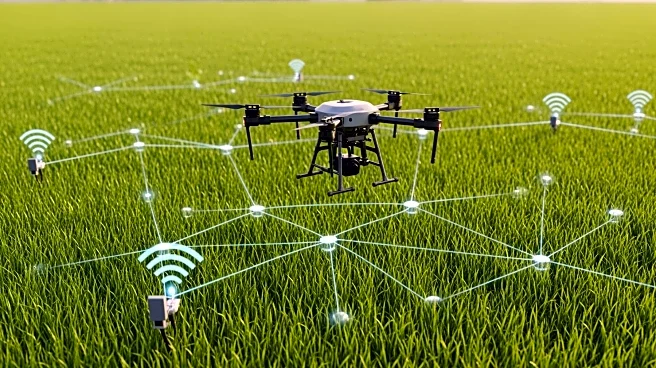What's Happening?
Case IH has introduced significant upgrades to its FieldOps platform, aimed at modernizing farming through smart connectivity and real-time machine monitoring. The platform now features a rapid refresh
rate for live updates, allowing farmers to view field performance every two to three seconds via the mobile app. Additionally, the AI boundary tool uses satellite imagery to automatically create accurate field boundaries, enhancing guidance accuracy and data visualization. FieldOps also offers improved linked accounts, enabling farmers to securely connect with agronomists and data managers for seamless collaboration. These advancements are designed to help farmers optimize operations, automate processes, and make informed decisions based on real-time data.
Why It's Important?
The enhancements to Case IH's FieldOps platform are crucial for the agricultural industry, as they provide farmers with tools to improve efficiency and productivity. Real-time monitoring and smart connectivity allow for better decision-making, reducing downtime and increasing yield potential. The ability to automate operations and share data seamlessly with agronomists and other stakeholders can lead to more precise farming practices and improved resource management. As agriculture continues to embrace technology, platforms like FieldOps play a vital role in supporting sustainable farming practices and addressing challenges such as climate change and resource scarcity.
What's Next?
As Case IH continues to develop its FieldOps platform, farmers can expect further integration of advanced technologies to enhance connectivity and data management. The focus will likely be on expanding the capabilities of AI tools and improving the accuracy of data-driven insights. Stakeholders, including farmers, agronomists, and technology providers, will need to collaborate to maximize the benefits of these innovations while addressing any barriers to adoption. The ongoing evolution of smart farming technologies may lead to shifts in agricultural practices and the development of new business models centered around data-driven decision-making.









